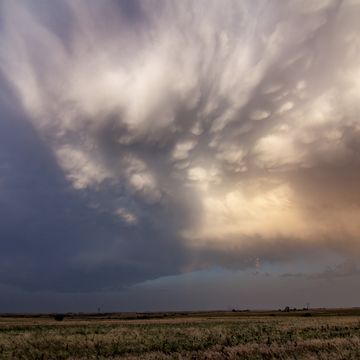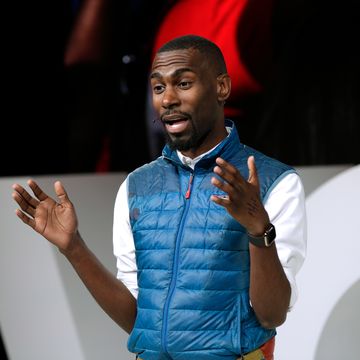Published in the December 2012 issue
Writers have always been whiners. For nearly a hundred years, since at least the time of F. Scott Fitzgerald, the death of the novel has been presaged. And now, egged on by BuzzFeed and video games and just general hypercaffeinated, e-mail-all-the-time ADHD, the book is apparently, finally, about to die. At least we'll have good stuff to read while we wait. This fall alone, the number of big books published by major writers is astounding: Michael Chabon, Zadie Smith, Junot Díaz, Martin Amis, Ian McEwan, Salman Rushdie, and about a half dozen others. Not that the list has stopped anyone from complaining. Literary circles have been so full of pity for so long that they can't accept the optimistic truth: We're living in a golden age for writers and writing.
The book that "comes out of nowhere" is almost commonplace. Matterhorn. The Tiger's Wife. Or these, both from tiny presses, which won the biggest literary prizes.
In music, it's a truism that technology liberated creators and listeners in magnificent ways but more or less ruined the industry in the process. Even big-name acts have struggled to adapt financially. But the world of writing has escaped this mess. Writers are prospering as never before, on all levels. At the very pinnacle, J.K. Rowling is a billionaire. She is richer than the queen of England. A little lower down the scale, Tom Wolfe was paid $7 million for his last novel. Just to put that in perspective, Charles Dickens's net worth when he died would be about $10 million today. And for writers starting out, there are more options, more means of access to the marketplace, than ever before. With Fifty Shades of Grey and a whole whack of other e-book miracles, self-publishing has almost lost its stigma. Small presses have never produced more lovely editions or had an easier time disseminating their products. In 2010 the National Book Award and the Pulitzer for fiction both went to books from tiny presses.
Not everyone reads, but everyone wants to be a writer. The release in December of the film version of On the Road makes writing novels look like it's all double handjobs by a naked Kristen Stewart while driving to New Orleans. Literary film adaptations assume that the writerly life is one of pure glamour — not pitiful despair.
It's not just the novel, either. The essay — long or short, literary or plain — has never been stronger. Practically every week, some truly fantastic piece of long-form nonfiction appears. This is not the normal state of affairs, no matter what nostalgics pretend. It's easy to imagine that in the past every New Yorker had Hannah Arendt on the banality of evil or every Esquire had Nora Ephron on small breasts. Go back and look at those old magazines and you will discover something shocking: They're mostly boring; they're also often just plain sloppy. With a few notable exceptions, almost every magazine in the world is in its best shape ever, right now. Good old-fashioned competition — from the Internet and the expanding marketplace — has forced them to improve. They're better written. Vastly better designed. More entertaining. More accurate. Richer. Finding great writing — and getting stories in front of eyeballs — has never been easier. Try going to Longform.org or Byliner and not losing yourself in their labyrinths of entirely free, entirely superb stories. Read the blogs of Foreign Policy or the Pulitzer Center, which offer fantastic reporting from all over the world.
The publishers are making money, too. Revenue for adult hardcover books is up 8.3 percent from 2011, and paperback sales are up 5.2 percent. Book sales for young adults and children grew by 12 percent last year. E-books accounted for 30 percent of net publisher sales in the adult fiction category in 2011 — compared with 13 percent in 2010 — but there's little evidence that those numbers represent anything other than a shift in format. The e-reader is creating a new market, not destroying an old one. People with e-readers read more books than those without, and on average adult Americans read seventeen books in 2011 — a number that hasn't been higher since Gallup and Pew began tracking the figure in 1990. And it's not just crap books. The percentage of Americans who told the National Endowment for the Arts that they read literature rose in 2008 (their most recent survey) by 3.5 percentage points to more than half the population — the first gain in twenty-six years.
Jonathan Safran Foer: "The novel can't compete with fragmented media. It can't compete with distractions. And unless Apple and Amazon tell us that the platforms for novel reading are going to be exclusively used for novel reading, then novels will just die." What was that? Sorry, I was checking my e-mail while thinking about the million-plus books you've sold.
A massive process of literary rebirth is under way. Everyone seems to understand and accept this golden age except the writers themselves. Colson Whitehead titled his Grantland series about playing in the World Series of Poker "Occasional Dispatches from the Republic of Anhedonia," but it could just as easily apply to a country of writers generally, naturally given to feeling downtrodden at the best of times. Zadie Smith's recent advice on the writing life in The Guardian was hilariously bleak: "Resign yourself to the lifelong sadness that comes from never being satisfied." The most startlingly contradictory case is Jonathan Franzen. In 1996, he wrote his famous "end of the nove" essay for Harper's Magazine. The novel was so dead that The Corrections sold nearly three million copies. Then, during the tour for Freedom, he told Terry Gross that he had imagined that he could at least hand-sell a couple hundred copies on the book tour and maybe those people would tell their friends to buy one as well. "Everyone decided we really don't have to read novels anymore," he said. This was around the same week he was on the cover of Time.
Jonathan Franzen, perhaps it's time to smile.
As Lily Tomlin once said, "We developed language because of our deep inner need to complain." The whining by writers is not just untrue; it's becoming embarrassingly untrue. New advice: Be grateful. Revel.
PLUS: Stephen Marche Writes All Week on The Culture Blog














